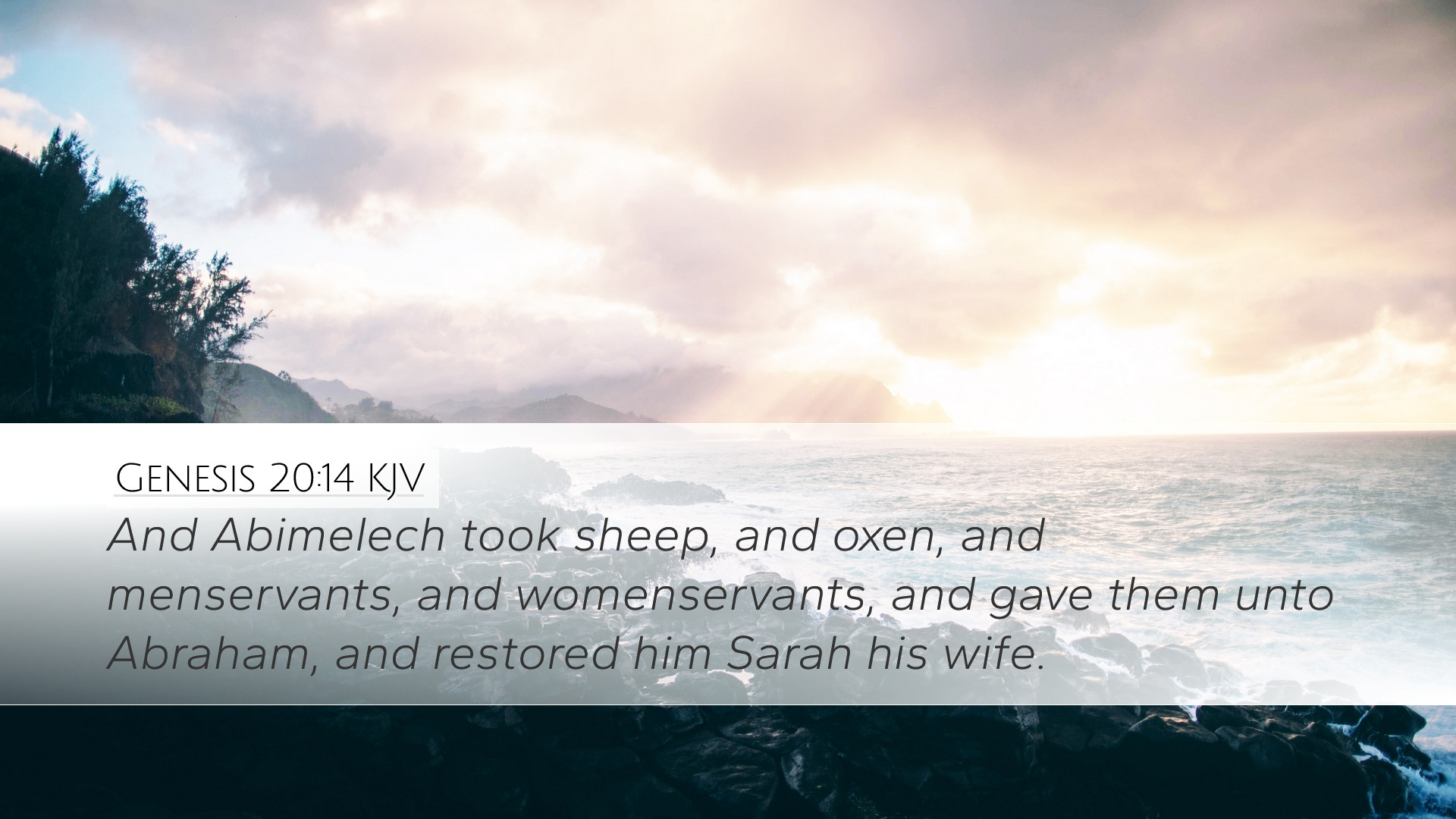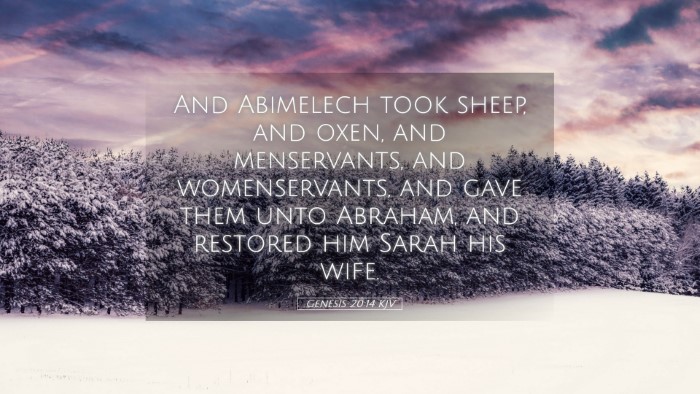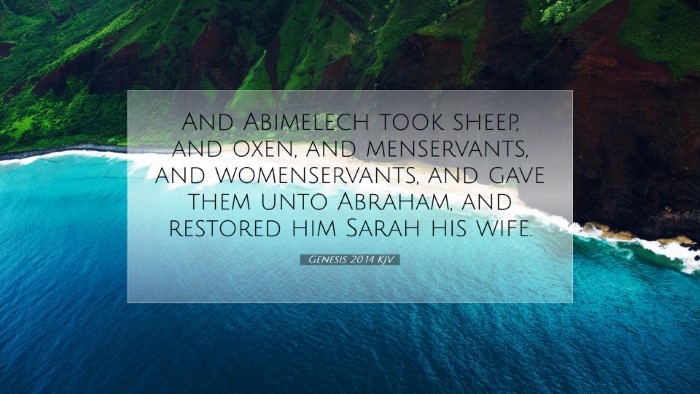Commentary on Genesis 20:14
Genesis 20:14 states: "And Abimelech took sheep, and oxen, and menservants, and womenservants, and gave them unto Abraham, and restored him Sarah his wife." This verse encapsulates a pivotal moment in the narrative of Abraham and Abimelech, providing insights into themes of divine protection, the sanctity of marriage, and the complexities of human relationships.
Contextual Overview
The story unfolds in a geographical and situational context where Abraham, out of fear for his life, introduces Sarah, his wife, as his sister to Abimelech, the king of Gerar. This act of deception, while aimed at self-preservation, sets into motion a series of divine interventions that underscore God's ongoing covenant with Abraham.
Insights from Public Domain Commentaries
Matthew Henry’s Commentary
Matthew Henry emphasizes the providential care of God over Abraham despite his failings. He notes that Abimelech, acting out of ignorance, is subjected to divine revelation, which demonstrates God's sovereignty in protecting His covenant people. Henry points out that the gifts Abimelech offers to Abraham not only restore Sarah to him but also serve as a recognition of Abraham's prophetic status. In doing so, Abimelech acknowledges this relationship with God and the seriousness of the wrong done to both Abraham and Sarah.
Albert Barnes’ Notes
Albert Barnes provides a detailed exegesis on the significance of Abimelech’s gifts. He observes that these offerings reflect a desire for reconciliation and are indicative of the cultural norms of hospitality and restitution in ancient Near Eastern societies. The gifts served as a means to express goodwill and to make amends for the wrong. Barnes further highlights the moral implications of Abraham's actions, framing the transaction as a reaffirmation of God’s covenant blessings even in the midst of human failings.
Adam Clarke’s Commentary
Adam Clarke focuses on the importance of Sarah’s restoration to Abraham not merely as a personal matter but as a theological one concerning the lineage through which the promise of God would be fulfilled. He stresses that the act of giving gifts was a common practice to establish peace and defense against any future consequences of wronging another. Clarke also interprets the narrative as a lesson on the seriousness with which God views the institution of marriage, declaring the relationship between Abraham and Sarah as sacred.
Theological Implications
- Divine Protection: The actions of God in this context reveal His unwavering commitment to protect His chosen people, providing a rich ground for exploring the dimensions of God's grace and mercy.
- Human Flaws: This episode illustrates the struggle between faith and fear, highlighting that human flaws do not disqualify one from God's promises and blessings.
- Importance of Integrity: The moral complexities of this narrative invite reflection on the significance of integrity in interpersonal relationships, especially concerning marriage.
- God's Sovereignty: The interplay between divine intervention and human action emphasizes the sovereignty of God in the fulfillment of His plans despite human errancy.
Practical Applications
Pastors and theologians can draw several practical lessons from this narrative:
- Encourage congregants to embrace truthfulness and integrity in their lives, underscoring the importance of honesty in relationships.
- Emphasize the importance of God's protective hand over communities and individuals, fostering a sense of trust in divine providence.
- Utilize this story in discussions on the nature of human relationships, especially concerning marriage, providing insights into maintaining sanctity and fidelity.
- Promote the practice of seeking reconciliation and making restitution when wrongs are committed, aligning with the gifts Abimelech presented to Abraham.
Conclusion
Genesis 20:14 presents a multifaceted narrative rich in theological and moral implications. It serves as a reminder of the interplay between human actions and divine sovereignty, calling readers to reflect on integrity, the sanctity of marriage, and the overarching grace of God that protects and restores His people. In a world fraught with moral quandaries, the narrative offers hope and direction for believers seeking to navigate life's complexities in faith.


